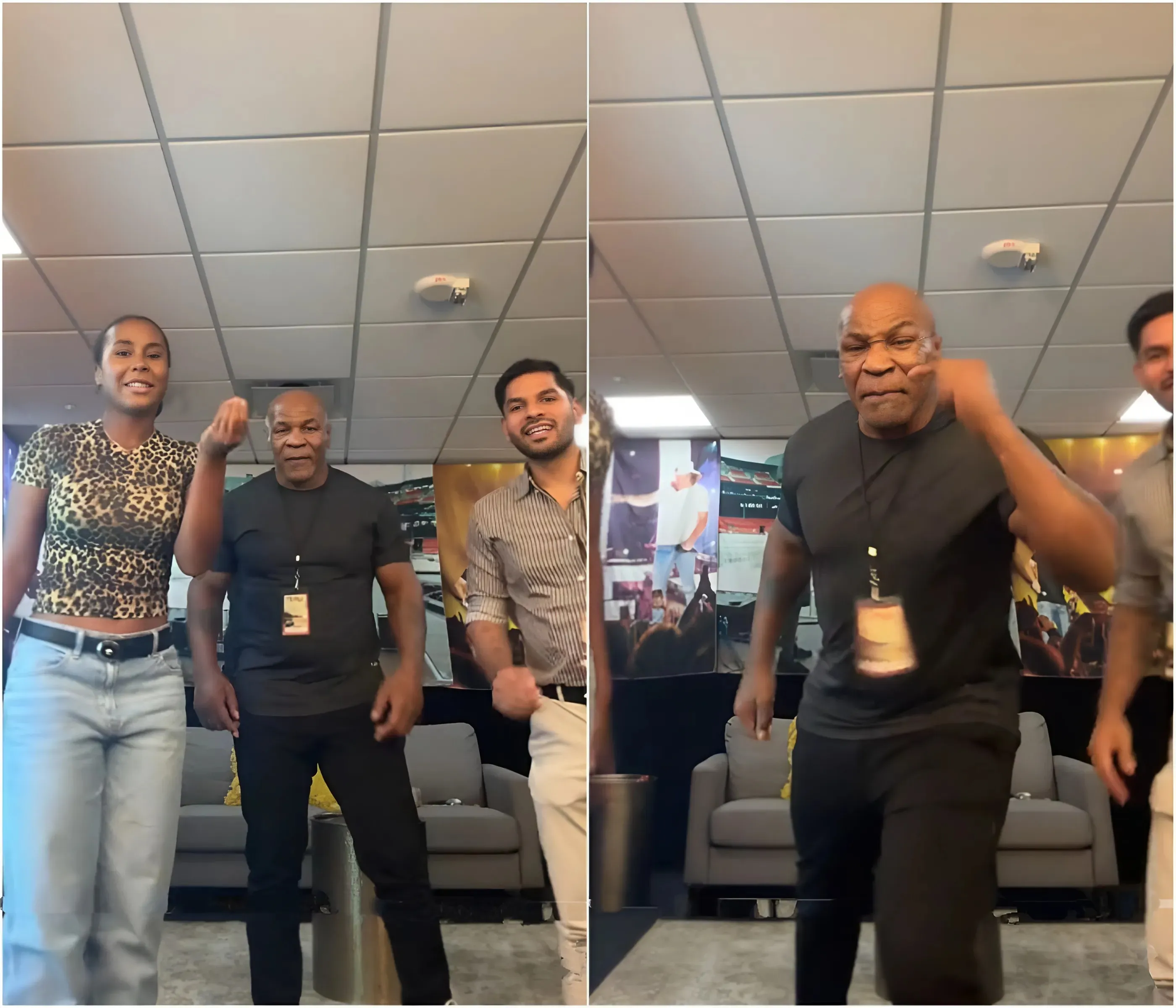The latest attempt by Mike Tyson to join the popular TikTok trend “Give me my money!” didn’t work out nearly as expected. Milan, his daughter, posted a video of the incident online, poking fun at her dad. With more than 1.2 million views, the video went viral on the internet.

In spite of the comical gaffe, Tyson is laser-focused on his November 15 exhibition bout against Jake Paul at Texas’s AT&T Stadium. Tyson hasn’t fought professionally since his 2005 bout with Kevin McBride, so this bout is his comeback. An exhibition fight he had in 2020 with Roy Jones Jr. finished in a draw by split decision.

As he reflected on his choice to fight Paul, Tyson proclaimed with conviction, “I don’t think he can hurt me,” and confessed that he was motivated by a thirst for fame and fortune. He opened up about his preference for a brief life of fame over a lengthy life of anonymity. Who am I to change?
Both fans and detractors are intrigued by Tyson’s comeback, which highlights his lasting impact in boxing and beyond.
Imane Khelif, an Olympic boxer, has spoken out against bullying following criticism of her comments on gender stereotypes
At the 2024 Summer Olympics in Paris, Algerian Boxer Imane Khelif Protests Bullying in the Wake of Gender Controversy

France (AP) — During the 2024 Summer Olympics in Paris, Algerian Olympic boxer Imane Khelif has drawn criticism for perpetuating gender stereotypes. Khelif spoke out against the vicious bullying she has experienced and the cruel scrutiny she has faced in an emotional interview with SNTV, a sports video partner of The Associated Press.
Khelif, who is only 25 years old, has been the target of a flood of cyberbullying stemming from baseless accusations regarding her gender. She was compelled to speak out against the harmful impact of such scrutiny after these unfounded charges tainted her Olympic experience. “Human dignity is being violated,” Khelif said. “It is imperative that individuals worldwide respect the Olympic values and the Olympic Charter, and that they abstain from harassing any and all athletes, since this behavior can lead to serious consequences.”

Khelif warned that bullying may ruin an athlete’s mind, spirit, and soul, and he brought attention to the heavy mental toll that bullying can take on sports. She is determined to become Algeria’s first female Olympic boxing champion, even if she is under tremendous pressure to do so.
Khelif was embroiled in controversy after the International Boxing Association (IBA) made claims that she and Taiwanese boxer Lin Yu-ting had failed certain eligibility tests to compete in the women’s division at the world championships last year. Nonetheless, the IBA has been permanently barred from the Olympics because to the widespread criticism of the lack of transparency in its accusations.
Khelif chose not to comment on whether she was subjected to testing other than drug tests, instead to stay focused on her Olympic trip. On the contrary, she thanked the International Olympic Committee (IOC) and its president, Thomas Bach, for their unwavering support throughout this difficult period. This result shows the truth, and I am happy about it because I know the Olympic Committee has treated me fairly, she said.
Throughout the Olympics, Khelif has shown her tenacity and resolve. She beat Italy’s Angela Carini in her first bout of the season and just beat Hungary’s Anna Luca Hamori in the quarterfinals of the women’s 66kg boxing contest. As she performs, her devoted supporters cheer her on while hoisting Algerian flags and calling out her name.
Unfazed by the judgments of others, Khelif continues to thrive amid the worldwide attention and criticism. “The opinions of others don’t matter to me. My goal in coming here is to compete for a medal, and I intend to keep doing so. “I intend to better myself and grow,” she remarked. In her next match, Khelif will face off against Thai player Janjaem Suwannapheng for the chance to advance to the finals and win the gold medal.
Khelif’s determination and tenacity have been on full display during her path to the Olympics. She found her calling in boxing when still a young girl in rural northwest Algeria, where she had dabbled in soccer. Even though her dad was against it at first, she rode the bus ten kilometers to a nearby town to hone her abilities. As a result of her perseverance and hard work, she is now one of Algeria’s top international competitors.
As Khelif presses on in her pursuit of Olympic gold, she serves as an inspiration to female athletes all across the globe. In a recent interview, she declared, “Yes, this issue touches on the dignity and honor of every woman. “The Arab community has known me for a long time, and they’ve watched me fight the IBA that betrayed me. However, I am supported by God.”
The story of Imane Khelif serves as a strong reminder of the significance of treating athletes with dignity and maintaining the principles of good sportsmanship. She represents her country and the aspirations of her many admirers as she battles for a place in Olympic history. Resilience, according to her message, and u